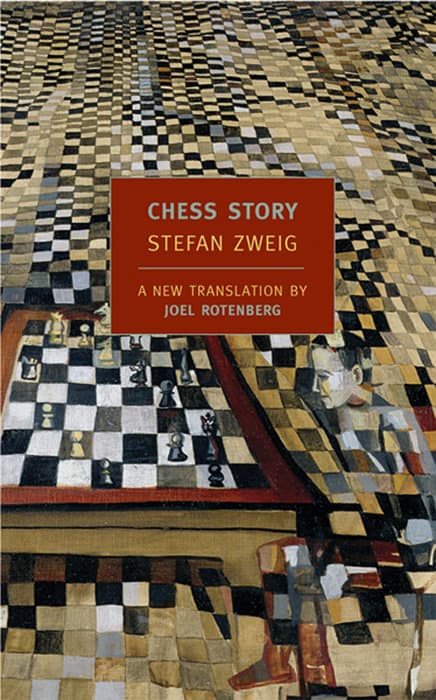
Book Review Summary: Chess Story
Introduction
"Chess Story" by Stefan Zweig is a novella that explores the game of chess and its psychological implications. Completed in Brazilian exile and sent to his American publisher just days before his suicide in 1942, this story is the only one in which Zweig addresses Nazism. With its unique blend of high suspense and poignant reflection, "Chess Story" has captured the imagination of readers worldwide. In this article, we will delve into the book's author, analyze the views of readers, and summarize the reasons why it is recommended.
About Stefan Zweig
Stefan Zweig was a renowned Austrian writer who gained immense popularity during the 1920s and 1930s. He produced novels, plays, biographies, and journalistic pieces, earning accolades for his subtle portrayal of character. Zweig's interest in psychology, coupled with his admiration for the teachings of Sigmund Freud, led to his most characteristic work. His essays included studies of Honoré de Balzac, Charles Dickens, Friedrich Nietzsche, and other literary giants. He achieved popularity with "Sternstunden der Menschheit" (1928; "The Tide of Fortune"), a collection of historical portraits in miniature.
Zweig's works have inspired numerous adaptations, including the 2014 film "The Grand Budapest Hotel." Despite his success, he faced personal struggles and ultimately took his own life along with his second wife in 1942. However, his legacy lives on through his enduring literary contributions.
Analysis of Views
-
Engaging plot: Readers rave about the gripping nature of "Chess Story." The novella's fast-paced narrative captivates readers from start to finish, making it difficult to put down. The unexpected twists and turns keep readers on the edge of their seats.
-
Psychological depth: The story delves into the psychological aspects of the characters, particularly their motivations and emotions. Readers appreciate the insightful exploration of human nature and the way it influences their actions. The portrayal of Czentovic's descent into madness and Dr. B's struggle to maintain his sanity is particularly noteworthy.
-
Thought-provoking themes: The themes explored in "Chess Story" resonate with readers on a deeper level. The idea of obsession and losing the joy of doing something you love is a universal concept that resonates with many readers. The story encourages introspection and reflection on one's own passions and priorities.
-
Well-crafted characters: The characters in "Chess Story" are well-developed and multi-dimensional. Readers appreciate the complexity of Czentovic and Dr. B, who represent different aspects of human nature. Their interactions and conversations add depth and nuance to the narrative.
-
Engaging writing style: Stefan Zweig's writing style is praised for its clarity, elegance, and emotional impact. Readers find his prose engaging and enjoyable to read. His ability to convey complex ideas and emotions in a concise manner is highly appreciated.
Reasons for Recommendation
-
Intense reading experience: "Chess Story" offers an intense reading experience that keeps readers hooked from start to finish. The fast-paced narrative and unexpected plot twists make it an exciting read that leaves a lasting impression.
-
Psychological insights: The novella provides valuable insights into human psychology and the motivations behind our actions. Readers appreciate the exploration of themes such as obsession, madness, and survival mechanisms. It encourages introspection and reflection on one's own life experiences.
-
High literary quality: Stefan Zweig's writing style is highly regarded for its elegance, clarity, and emotional impact. Readers appreciate his ability to convey complex ideas and emotions in a concise manner, making "Chess Story" a literary gem that stands the test of time.
-
Universal appeal: The themes explored in "Chess Story" resonate with readers on a universal level. Whether you are a chess enthusiast or not, the story offers a thought-provoking exploration of human nature that appeals to a wide audience. It encourages readers to reflect on their own passions and priorities in life.
Conclusion
"Chess Story" by Stefan Zweig is a captivating novella that combines elements of suspense, psychological depth, and literary excellence. With its gripping plot, well-crafted characters, and thought-provoking themes, it has garnered widespread acclaim from readers worldwide. Whether you are a fan of chess or simply appreciate well-written literature, "Chess Story" offers an engaging reading experience that will leave a lasting impression. The story's exploration of human nature and the psychological implications of obsession makes it a must-read for those seeking a deeper understanding of themselves and the world around them.